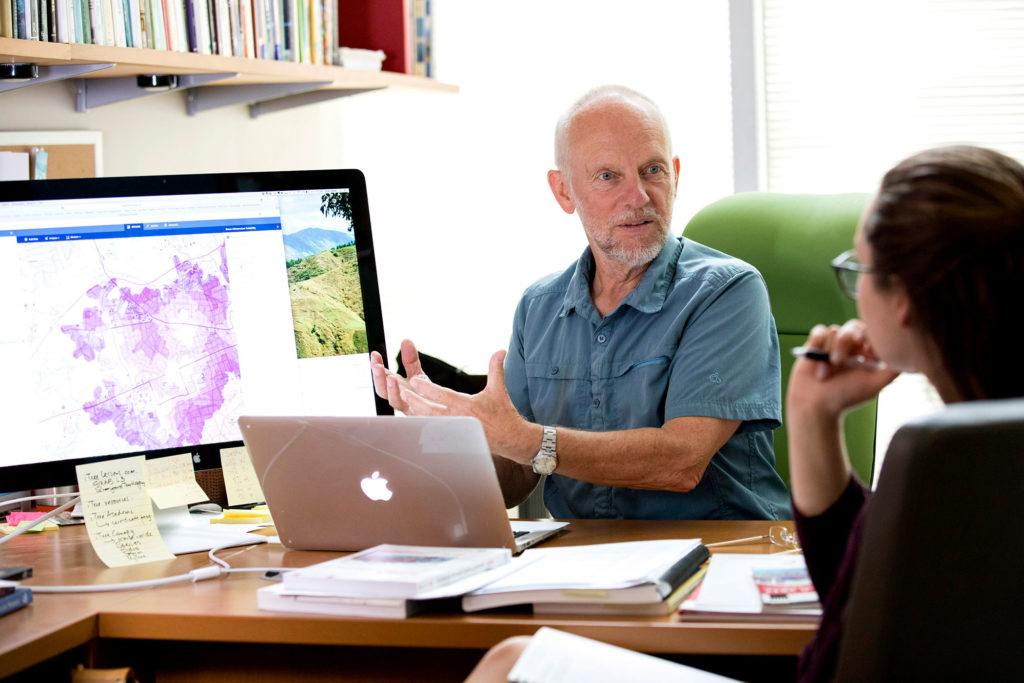Two years ago, Brian Orland joined the faculty of UGA’s College of Environment and Design, bringing with him a lifetime of scholarly and practical experience in the realm of environmental design.
The tools now used to design and plan on the land are more complex and sophisticated and more encompassing of diverse human experience and interactions. Orland’s work seeks to ensure that communities are prepared and able to benefit from those tools and not simply be overwhelmed by their technical complexities. His basic assumption is that communities are always under pressure to adapt to numerous variables. Of late, his focus has been on places profoundly affected by economic development pressure and compromised water and land resources, specifically on the coast of Georgia.
FACTS
Brian Orland
Rado Family Foundation Professor of Geodesign
- College of Environment and Design
- MLA, Landscape Architecture, University of Arizona, 1982
- BArch, Architecture, University of Manchester, 1976
- BA (Honors), Architecture, University of Manchester, 1974
- At UGA: Two years
“To plan for future large-scale landscape change driven by weather events, economic development, population growth or decision makers, whether citizens or expert land managers, [we] need robust mental models of the critical interactions within all of the relevant systems and reporting of all their implications,” Orland said.
Orland has done pioneering work in computer visualization for design and planning research, including virtual and augmented realities for testing design ideas. He came to UGA after academic careers at the University of Illinois (18 years) and Penn State University (14 years).
He relishes working with scholars and students from varying disciplines such as geography, anthropology, engineering and ecology. Last year, when Hurricane Matthew made landfall on Georgia’s coast, communities up and down the shoreline experienced flooding and wind damage, and infrastructure was overwhelmed in some of the more vulnerable towns and rural communities.
Nevertheless, the arrival of Matthew when the tide was low meant that coastal Georgia avoided the dramatic losses of Hurricanes Katrina and Sandy. Orland saw the opportunity to learn from the experiences of people who endured the potential of catastrophic loss but were able to return to their homes and resume daily life.
Born out of his work in disadvantaged settings internationally and across the U.S., Orland has realized how much of the heavy lifting of the planning and design of daily life is carried out by ordinary citizens who are expert in their own fields of interest but novices in most others. His goal is to educate new designers and planners to first learn as much as possible about the way ordinary citizens play out their lives as “people of the place,” then empower ordinary citizens to participate meaningfully in deliberations about the future of their communities and finally to work alongside them to realize their dreams.
